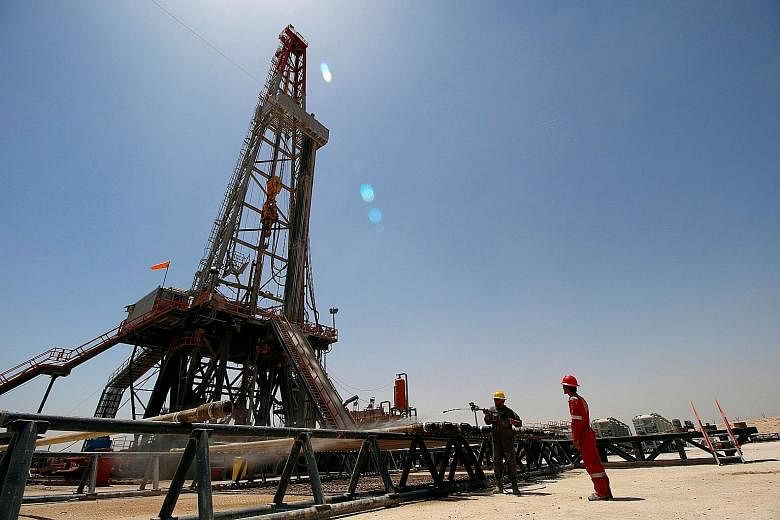CAIRO • Opec+ is set to extend record production cuts to prop up the oil market after a breakthrough in high-stakes negotiations, with the alliance to hold discussions today to formally sign off on the deal.
After almost a week of wrangling, Opec+ leaders Russia and Saudi Arabia clinched a tentative deal with holdout member Iraq, according to a delegate. The pair was pushing Iraq to stop shirking its share of cuts and even to compensate for failure to comply with cuts in the past.
The agreement - though still to be ratified - means Opec+ will extend its record production curbs for another month until the end of next month.
Oil prices nudged higher yesterday as traders awaited cues from the meeting. Brent crude futures were up 0.5 per cent to US$40.19 a barrel as of 0419 GMT (12.19pm Singapore time), while US West Texas Intermediate futures were up 0.2 per cent to US$37.49.
The 23-nation partnership between the Organisation of Petroleum Exporting Countries and other major producers, dubbed Opec+, has helped engineer a doubling in Brent prices since April.
The oil price surge has revived the fortunes of major energy companies like Exxon Mobil and Royal Dutch Shell, and reduced the fiscal hole in the budgets of oil-rich nations.
Failure to reach an agreement this month could have brought millions of barrels of oil on to the market, undermining a tentative recovery as the coronavirus lockdown eases. With US shale production starting to come back online, Opec's careful management of the demand recovery is crucial.
The kingdom and the Kremlin, which were on opposite sides of a vicious price war until a peace deal in April, are now united against those in Opec who have consistently failed to shoulder their share of the burden. Russia, a habitual laggard, has complied punctiliously with the historic deal brokered by US President Donald Trump in April, and wants to make sure others are too.
"Reunited in leadership of Opec+ and grimly facing many more months, if not years, of oversupply, Russia and Saudi Arabia had little to lose and much to gain by imposing concrete measures to improve compliance by the laggards, especially Iraq," said Mr Bob McNally, founder of consultant Rapidan Energy Group and a former White House official.
The details of the deal between Opec+ and Iraq on compliance were not clear late on Thursday.
Tougher conditions will be difficult for Iraq to accept. It made less than half of its assigned cutbacks last month, so compensating fully would require it to slash production by a further 24 per cent to about 3.28 million barrels a day, according to Bloomberg calculations.
BLOOMBERG

